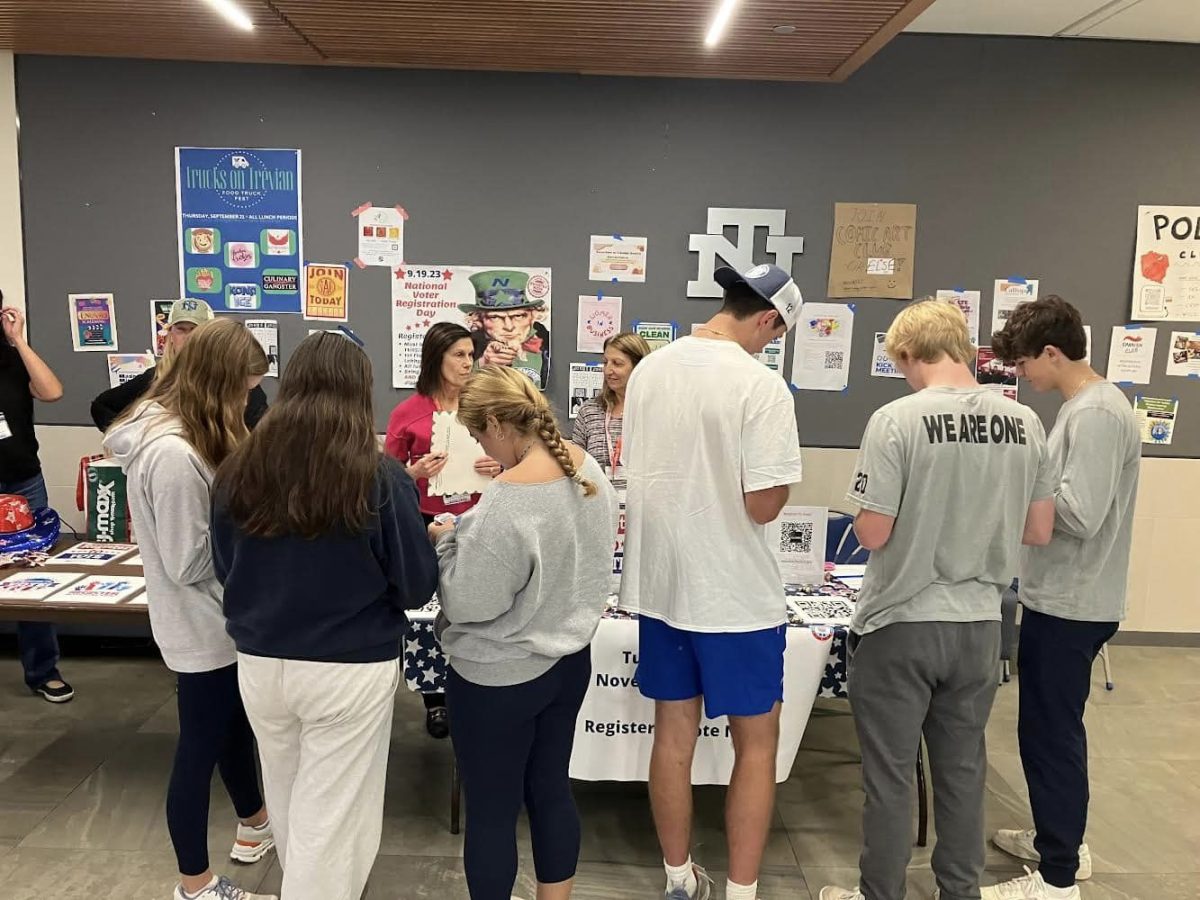With early voting officially underway in Illinois, the November general election is hastily approaching. For some New Trier High School students, the 2024 election will be their first opportunity to cast a ballot. There are also numerous other ways for students to get involved, including volunteering for an advocacy organization, local candidate, or political party, or working as an election judge.
Senior Aidan Andrew has gotten involved in politics through Students Demand Action, a nationwide organization of students working to prevent gun violence. He is the president of its New Trier Township chapter and has been involved since his freshman year.
In his time with the local group, they have held fundraisers for different organizations and made phone calls supporting “Gun Sense” candidates—the term for candidates supported by Students Demand Action. Andrew also said they have written letters reaching out to registered voters in other states, encouraging them to vote.
Although Andrew is ineligible to vote himself—he doesn’t turn 18 until January—he has still tried to follow the election.
“I’m definitely still engaged in the election, and I pay pretty close attention,” Andrew said, “even though I can’t vote, which is a little disappointing.”
Andrew finds his work with Students Demand Action meaningful and mentioned there are many other organizations for students who are passionate about other issues to get involved in.
“It’s just a great way to be civically engaged,” he said. “You can actually feel like you make a difference in the community.”
While some students are getting involved outside of school, political affiliation groups at New Trier have seen participation bottom out in recent years. For example, clubs for politically-minded students of both parties currently lack membership.
Student Activities Director Stacy Kolack is listed as the sponsor of both the Trevian Republicans and Young Democrats Club on the New Trier Club Finder. However, according to Kolack, neither club runs currently because students have not expressed interest. She decided to leave them open in case any students reach out to get involved during the lead-up to the election, but that has yet to happen.
This trend regarding engagement can be seen in national data. Young people, specifically eligible voters ages 18-29, have consistently voted at the lowest rate of any age group in the country. In 2024, according to data compiled by Tufts University, youth voter registration across the country lags behind the numbers put up in 2020.
Senior Max Klie, who is registered to vote in the upcoming election, views voting as a civic duty and finds it unfortunate that many young people do not feel the same way. He believes that this lack of interest can stem from the nature of U.S. presidential elections.
“Especially in pretty safely blue states, if you’re a younger liberal or a younger conservative, many people tend to think there’s not really not much difference they could make,” Klie explained.
Illinois has voted for the Democratic candidate in the last eight presidential elections, each time by double digits, and it is expected to vote solidly for Vice President Kamala Harris this year. Despite this lack of competitiveness, other students still enjoy following national politics.
Senior Teddy Jack, a self-described political junkie, is ineligible to vote but has closely followed the election. In particular, he noted certain issues that he is more passionate about as a young adult, while older voters may place more emphasis on issues like the short-term economy.
“I care a lot more about things that are more long term, like the health of U.S. democracy, or investments in things like climate change and future technologies,” Jack said.
Through his interest in politics, Jack got involved in debate and subsequently the New Trier Political Journal, a student publication showcasing student voices on current events, history, and social issues.
Klie, who writes for the Political Journal as well, is currently in the process of training to be an election judge. Last month, he also tried to organize a voter drive but faced issues getting approval from the school. However, members of the League of Women Voters helped register students to vote at the Winnetka Campus outside of the cafeteria during lunch periods on Sept. 17, which is National Voter Registration Day.
For students who are not yet registered to vote but will be 18 by Election Day, they can register online through the Illinois State Board of Elections. Students who are unsure if they are registered can also check by entering their information on the website. Additionally, they can find information about polling locations and early voting.
Websites like Vote.org and Ballotpedia can also be used to see all the races and questions on the ballot.
Beyond this election, Klie believes that starting the process of being civically involved is important. Voting for the first time can kickstart more frequent voting and participation in midterm and local elections and make people more civically engaged.
“I think it’s also a gateway to pursue bigger forms of engagement,” Klie said. “That decision to go out, register, and vote and actually going through that is definitely an important starting point.”








































